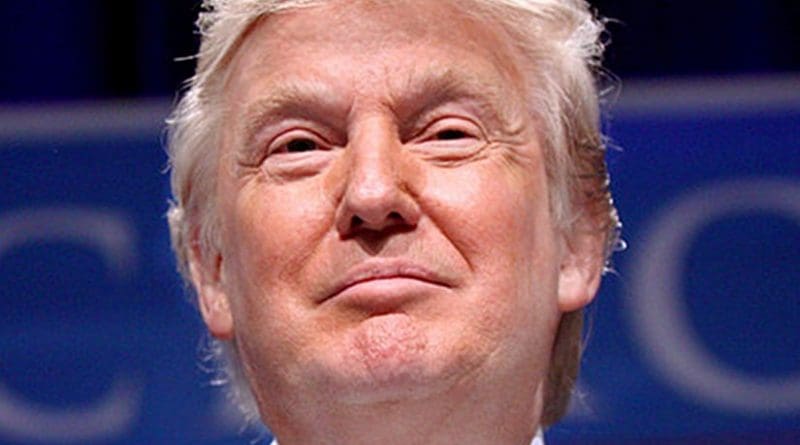Davos: Industry And Political Leaders Split Over Trump Earthquake
By EurActiv
By Daniela Vincenti
(EurActiv) — On the day of the inauguration of Donald Trump, the 47th president of the United States, bearish business leaders gathered in Davos are ready to jump on the bandwagon of the new era, but the political elites remain unimpressed and fear growing populism and protectionism.
“There is real optimism,” says Cathy Engelbert, chief executive of Deloitte, during a breakfast in Davos.
”Companies aren’t that focused on the politics but they’re very focused on whether there will be policies that create the right business environment, such as tax reform that includes repatriation of overseas cash, improving the merger and acquisition landscape, and whether infrastructure spending will occur.”
A report published earlier this week found that more than half of the business leaders interviewed felt “extremely positive” about long-term growth prospects for their companies, compared to only a third two decades ago when the survey was first published.
Elected on a jobs-focused and nationalistic platform, Trump has promised to rebuke big US companies that move jobs abroad. He also promised big tax cuts for the rich, an aggressive programme to build new infrastructure driven by tax credits, increased military spending and a 45% tariff on goods from China.
Such promises have irked policymakers, who are preparing for the worst. European Commissioner for Economic and Financial Affairs Pierre Moscovici, told EurActiv that the Trump era will usher in more nationalism and protectionism than before.
Trump cannot deliver on his promise to make America great again if Washington provides less global leadership, German Finance Minister Wolfgang Schäuble said in Davos.
“I heard from the president-elect that he wants to make the US stronger,” Schäuble said “If you want to make the US stronger you cannot reduce [your] capacity to lead the world.”
The global economic outlook might explain part of the disconnect between politicians and businessmen. Economic activity is perking up and consumer confidence is strong. However, there are some significant tail risks associated with political uncertainty, trade frictions and adverse effects of a rapidly rising US dollar.
Still taking “Buy American” to the extreme will create tensions. Martin Sorrell, chief executive of WPP, the world’s largest advertising agency, said US growth could come at the cost of nations elsewhere.
“The issue on Trump is what you win on the US swings, you may lose on the international roundabouts,” he said.
European companies will try to swallow the bitter pill. “There is no doubt we need to adapt,” Carlos Ghos, chief executive of Renault-Nissan, said. “All carmakers have to revise their strategy as a function of what is coming.”
Some have already adapted. China e-commerce giant Alibaba Executive Chairman Jack Ma met Donald Trump last week and laid a plan new plan to bring one million small US businesses onto its platform to sell to Chinese consumers over the next five years.
Speaking in Davos, Ma discarded the fear that a trade war was inevitable.
“China and the US will never have a trade war. Give Trump some time. He’s open minded,” Ma told a panel at the meeting of business and political leaders in the Swiss Alps.
Yet, Chinese President Xi Jinping warned, in what seemed a veiled offensive on the US, that pursuing protectionism is just like clocking oneself in a dark room.
“Whether you like it or not, the global economy is the big ocean that you cannot escape from.
Any attempt to cut off flows of capital, technologies, products, industries and people between economies and channel the waters in the ocean back into isolated lakes and creeks, this is simply not possible and indeed it runs counter to the historical trend,” President Xi said during his landmark speech in Davos, the first given by any Chinese president.
Even billionaire George Soros rallied behind the pessimists and warned that Trump was “gearing up for a trade war” with “a very far reaching effect in Europe and other parts of the world”.
Without mincing his words, he said the “would-be-dictator […] didn’t expect to win, he was surprised,” the Hungarian-born financier told an audience of business leaders and journalists at a Hotel in Davos where the World Economic Forum is being held.

